Related Research Articles
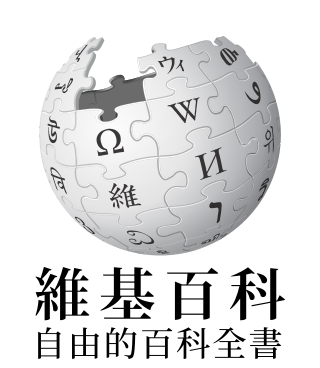
The Chinese Wikipedia is the written vernacular Chinese edition of Wikipedia. It has been run by the Wikimedia Foundation since 11 May 2001.
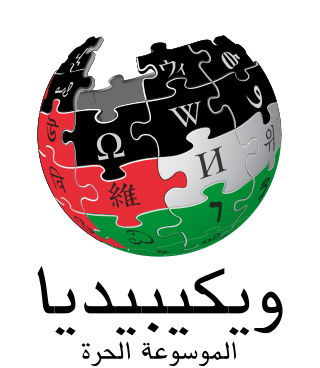
The Arabic Wikipedia is the Modern Standard Arabic version of Wikipedia. It started on 9 July 2003. As of January 2025, it has 1,249,071 articles, 2,670,374 registered users and 53,810 files and it is the 17th largest edition of Wikipedia by article count, and ranks 7th in terms of depth among Wikipedias. It was the first Wikipedia in a Semitic language to exceed 100,000 articles on 25 May 2009, and also the first Semitic language to exceed 1 million articles, on 17 November 2019.

The Urdu Wikipedia, started in January 2004, is the Standard Urdu-language edition of Wikipedia, a free, open-content encyclopedia. As of 2 January 2025, it has 216,102 articles, 188,721 registered users and 7,453 files, and it is the 54th largest edition of Wikipedia by article count, and ranks 20th in terms of depth among Wikipedias with over 150,000 articles. There were 6 million page views in January 2024. On 7 January 2024, the Urdu Wikipedia became the first South Asian-language Wikipedia to surpass 200,000 articles.

The Hindi Wikipedia is Modern Standard Hindi edition of Wikipedia. It was launched in July 2003. As of January 2025, it has 163,691 articles, and ranks 10th in terms of depth among Wikipedias.
Multiple forms of media including books, newspapers, magazines, films, television, and content published on the Internet are censored in Saudi Arabia.

The Cantonese Wikipedia is the Cantonese-language edition of Wikipedia, run by the Wikimedia Foundation. It was started on 25 March 2006.

The Egyptian Arabic Wikipedia is the Egyptian Arabic version of Wikipedia, a free, open-content encyclopedia. This Wikipedia primarily acts as an alternative to the Arabic Wikipedia in favor of speakers of the Egyptian dialect. Until 2020, it was the only Wikipedia written in a localised dialect of Arabic. The second one is Moroccan Wikipedia, which was approved and created in July 2020.
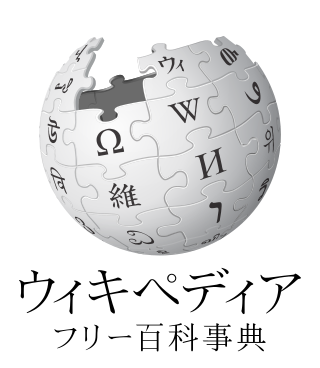
The Japanese Wikipedia is the Japanese edition of Wikipedia, a free, open-source online encyclopedia. Started on 11 May 2001, the edition attained the 200,000 article mark in April 2006 and the 500,000 article mark in June 2008. As of January 2025, it has almost 1,443,000 articles with 12,499 active contributors, ranking fourth in the latter metric behind the English, French and German editions.

Wikipedia has been censored by governments that occurred widely in countries including China, Iran, Myanmar, Pakistan, Russia, Saudi Arabia, Syria, Tunisia, Turkey, Uzbekistan, and Venezuela. Some instances are examples of widespread Internet censorship in general that includes Wikipedia content. Others are indicative of measures to prevent the viewing of specific content deemed offensive. The duration of different blocks has varied from hours to years.

The Wikipedia community, collectively and individually known as Wikipedians, is an online community of volunteers who create and maintain Wikipedia, an online encyclopedia. Since August 2012, the word "Wikipedian" has been an Oxford Dictionary entry. Wikipedians may or may not consider themselves part of the Wikimedia movement, a global network of volunteer contributors to Wikipedia and other related projects hosted by the Wikimedia Foundation.
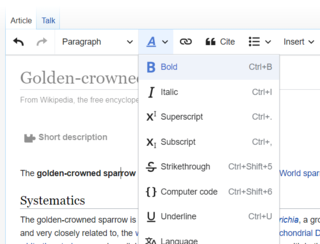
VisualEditor (VE) is an online rich-text editor for MediaWiki-powered wikis that provides a way to edit pages based on the "what you see is what you get" principle. It was developed by the Wikimedia Foundation in partnership with Fandom. In July 2013, it was enabled by default on several of the largest Wikipedia projects.

On September 13, 2021, the Wikimedia Foundation took official action on the Chinese Wikipedia after investigating users from Wikimedians of Mainland China, an unaffiliated Wikipedia user group.
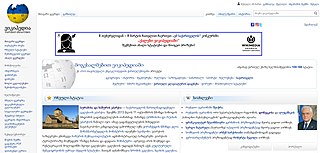
The Russian invasion of Ukraine is extensively covered on Wikipedia across many languages. This coverage includes articles on and related to the invasion itself, and updates of previously existing articles to take the invasion into account. Wikipedia and other Wikimedia projects' coverage of the conflict – and how the volunteer editing community achieved that coverage – has received significant media and government attention.
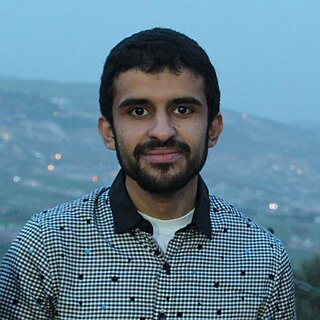
Osama Khalid is a Saudi Arabian medical doctor and a Wikipedia administrator, who was sentenced to a 32-year prison sentence in 2020. According to human rights activists, his arrest and prison sentence was because he contributed information deemed to be critical about the persecution of political activists in Saudi Arabia. According to the joint statement by Washington-based whistleblower organization DAWN and Beirut based digital rights group SMEX, the arrest of Osama is speculated to be part of a crackdown on Wikipedia administrators. However, the charges pressed on him by the Saudi regime are "swaying public opinion" and "violating public morals" by posting content "deemed to be critical about the persecution of political activists in the country".
The censorship of Wikimedia in mainland China means that the government of the People's Republic of China and network operators in mainland China have used technical means since June 2004 to prevent netizens in mainland China from accessing some or all project websites under the Wikimedia Foundation. One of the most affected projects is the Chinese Wikipedia. There was no warning from any department before these blockings occurred and no explanation for the reasons after the occurrence. The outside world believes this is caused by the Chinese government's censorship and blocking of sensitive content in Wikimedia Foundation projects.
Qiuwen Baike is a Chinese online encyclopedia. It was launched in June 2023 by former members of Wikimedians of Mainland China as a fork of the Chinese Wikipedia, and has been described by some media groups as "Beijing-friendly" version of Wikipedia.
References
- ↑ "Saudi Arabia 'infiltrated' Wikipedia to control content, activists say".
- ↑ "Wikipedia Middle East editors ban shows risks for creators | Context".
- ↑ 林宜萱 (2023-01-06). "維基百科管理員遭沙國重判32年徒刑 被控支配輿論及妨害風俗". 太報. Archived from the original on 2023-03-03. Retrieved 2023-03-04.
- ↑ "沙特被指滲透維基 拘高層囚32年". 明報 . 2023-01-07. Archived from the original on 2023-01-07. Retrieved 2023-03-03.
- 1 2 Belanger, Ashley (2023-01-06). "Wikipedia admin jailed for 32 years after alleged Saudi spy infiltration". Ars Technica. Retrieved 2024-06-22.
- 1 2 AFP (2023-01-05). "Saudi Arabia jails two Wikipedia staff in 'bid to control content'". The Guardian. ISSN 0261-3077 . Retrieved 2024-06-22.
- ↑ DAWN (2023-01-16). "Saudi Arabia: Government Agents Infiltrate Wikipedia, Sentence Independent Wikipedia Administrators to Prison". DAWN. Retrieved 2024-06-22.
- ↑ Pao, Ming. "沙特被指滲透維基 拘高層囚32年". www.mingpaocanada.com. Retrieved 2024-06-22.
- ↑ Osseiran, Nazih. "Wikipedia Middle East editors ban shows risks for creators | Context". www.context.news. Retrieved 2024-06-22.